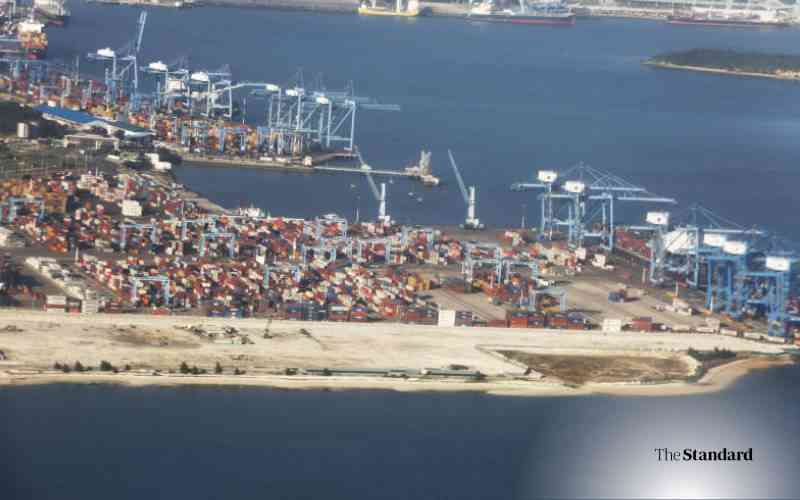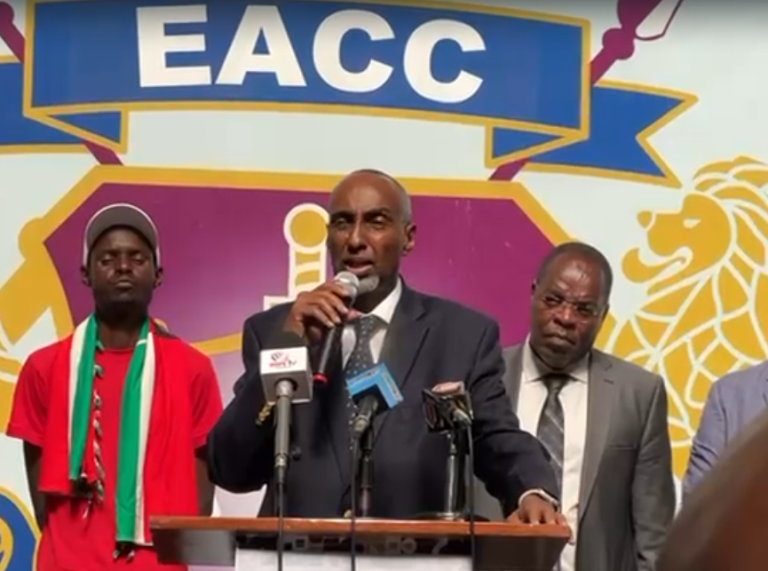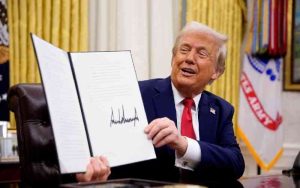The new Extended Producer Responsibility (EPR) levy has sparked debate from various stakeholders, with some insisting it will raise the cost of imported goods in the country.
The stakeholders argue that implementation of the EPR levy will lead to huge costs for products like nappies, sanitary pads, and detergents, and hit low-income households hard.
The EPR 2024 regulation imposed a levy that will take effect on June 1 this year, and shippers (exporters and importers) argue that it will lead to double taxation, raise the cost of doing business, and make certain imported goods costly.
Some stakeholders feel the collection of the levy should be delayed until January next year to allow for time to address the grey areas and other business concerns.
The new regulation that enforces the levy mandates an additional Sh150 per case for all imports with nylon packaging to be remitted to the National Environment Management Authority (Nema).
The Mombasa County government wants to collect the levy, arguing that the waste collection function has since been transferred to devolved units, and hence, NEMA has no role.
The devolved unit therefore wants a structured engagement with the national government and NEMA to ensure that it benefits from the funds.
But industrial stakeholders, including the Shippers Council of East Africa (SCEA), argue that the cost will be imposed on top of an already existing waste management levy (eco levy) annual fee currently being paid.
An analysis of the cost implications of the levy presented by SCEA (which represents importers and exporters) shows that the new regulation could come with huge costs of doing business for local importers and multinational companies.
For instance, a 40-foot container with 2,233 cases of Pampers brand costs an estimated Sh334,950; 2,543 cases of Ariel cost Sh381,450; 2,232 cases of Downy cost Sh334,800; and 3,740 cases of Always cost an estimated Sh561,000.
SCEA executive officer Mr Agayo Ogambi noted that the new EPR charge overlaps with current waste management contributions, leading to redundant payments for the same environmental compliance goals.
“The added operational costs are likely to be passed down to consumers, leading to higher retail prices for essential products like nappies, sanitary pads, detergents, and fabric softeners—affecting low- and middle-income households,” argues Ogambi.
Industry stakeholders have urged SCEA to engage with the government and NEMA to seek clarification and potential harmonisation of EPR-related charges to avoid duplication.
Critics argue that manufacturers, raw materials, and industrial inputs are not exempt, and this spells doom for the envisaged plans to support industrialisation in the country.
They warn that micro, small, and medium enterprises (MSMEs) will be adversely affected by the Sh150 levy per item, which does not consider equity.
“The levy shall aggravate the already difficult business environment. The intention to protect the environment is noble, but further consultations and understanding of the regulations and what levies are to be imposed are important,” argues Ogambi.
Mr Ismael Bett, chief executive officer of the Association of Kenya Suppliers (AKS), argued that things in the EPR regulation leading to the new levy are not yet clear and need to be defined.
“The cost of these wrapped items, whose value is currently low, will have their retail prices significantly shot up. From how I see it, there are many grey areas in this regulation. For some consumers, its impact will be very high. Some of the items will be out of reach,” he argued.
However, Mombasa Deputy Governor Mr Francis Thoya welcomed the EPR levy but said it should be collected by counties and not NEMA since the former are now in charge of collecting waste.
“We need to appreciate the national government for bringing this legislative framework to force producers of waste to take responsibility. But the big question is whether Nema should collect this money. Nema no longer manages waste; this function has been taken over by counties, and hence they should be collecting the money,” argued Thoya, who is also in charge of the solid waste management docket.
Thoya stated that the conversation has come at the right time, and the devolved governments need to engage the national government and NEMA because they are the ones bearing the impact of waste management and also own the dumpsites.
“Rightly, it is the counties that are supposed to impose and collect the EPR levy. It is therefore time to engage NEMA to transfer that fund to the counties. Counties are responsible for waste collection, not NEMA. We are the ones who manage waste and the dumpsites,” he added.
The EPR levy is a mechanism where manufacturers, importers, and brand owners are financially held responsible for the end-of-life management of their products.
This includes waste collection, recycling, and disposal. Under the new regulation, the producers will pay a fee to cover these costs, which can then be used to fund waste management infrastructure and services.
The producers and importers of the targeted products are required to register with NEMA and pay the fees as per the regulation.
They are required to meet their obligation as outlined in the regulation, which includes ensuring proper collection, transportation, and recycling of waste.
The producers are also required to submit annual reports to NEMA detailing the amount of product they collected, recycled, and disposed of.













